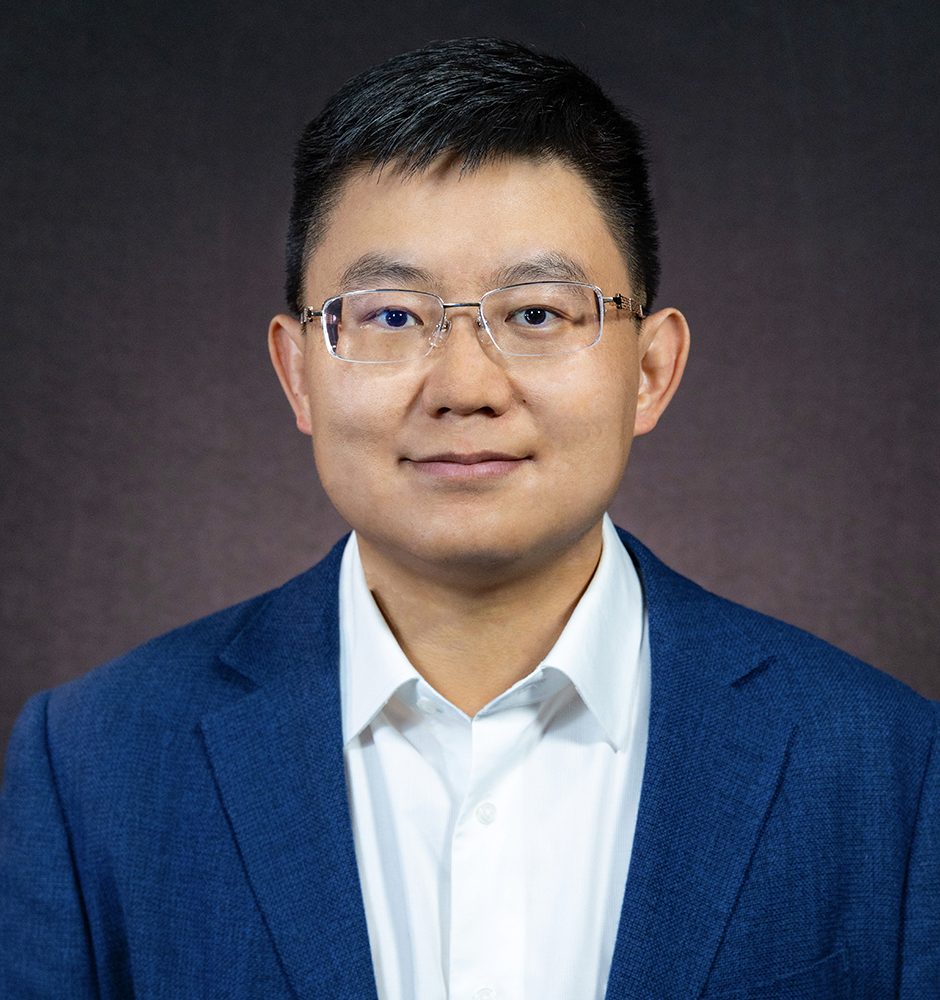加密貨幣挖礦成為中國碳減排的推動力? 隨著全球加密貨幣市場的快速發展,加密貨幣挖礦業已成為一個數十億美元的產業。然而,加密貨幣挖礦因其高能源消耗而受到批評,亦是中國政府在2021年禁止「挖礦」的主要原因之一。儘管如此,何國俊教授近日在《信報》撰文,指出合理的電價政策能使挖礦活動促進可再生能源的發展,並降低碳排放。

3917 7729
KK 903
- Ph.D. UC Berkeley
- B.A. Peking University
Guojun HE is an economist working on environmental, development, and governance issues. Currently, he is a professor in Economics at the University of Hong Kong (HKU). He serves as the director of HKU’s ESG Research Institute and the associate director of HKU’s Institute of China Economy. He holds a concurrent appointment at the Energy Policy Institute of the University of Chicago (EPIC) and leads research activities of its China center (EPIC-China).
HE’s research tries to address some of the most challenging problems faced by developing countries and seeks to produce empirically grounded estimates for optimal policy design. The majority of his work focuses on understanding the benefits and costs of environmental policies, while he also has a broader research interest in development and governance issues.
He has won multiple academic awards, including the Zhang Pei-Gang Award for Outstanding Achievement in Development Economics (the highest award in China for development economics research) and the Gregory Chow Best Paper Award from the Chinese Economists Society. In addition, He is also a Fellow of the Asian Bureau of Financial Economic Research, an external research affiliate of the Institute of Sustainable and Green Finance at the National University of Singapore, a visiting scholar at the University of Chicago, and a consultant to the Asian Development Bank, CICC Research Institute and other institutions.
- Environmental Economics
- Applied Econometrics (Causal Inference)
- Mark Buntaine, Michael Greenstone, Guojun He, Shaoda Wang, Mengdi Liu, and Bing Zhang, “Does the Squeaky Wheel Get More Grease? Citizen Participation, Social Media, and Environmental Governance in China,” American Economic Review, forthcoming.
- He, Guojun, Jeffrey T. LaFrance, Jeffrey M. Perloff, and Richard Volpe, “How Do Everyday-Low-Price Supermarkets Adjust Their Prices?” Review of Industrial Organization, 2023, https://doi.org/10.1007/s11151-023-09922-0.
- He, Guojun, Yuhang Pan, Albert Park, Yasuyuku Sawada, and Elaine S. Tan. “Reducing Single-Use Cutlery with Green Nudges: Evidence from China’s Food Delivery Industry,” Science, 8 Sep 2023, Vol 381, Issue 6662.
- He, Guojun and Takanao Tanaka. “Energy Saving May Kill: Evidence from the Fukushima Nuclear Accident,” American Economic Journal: Applied Economics, 2023, 15(2): 377-414.
- de Janvry, Alain, Guojun He, Elisabeth Sadoulet, Shaoda Wang, and Qiong Zhang. “Subjective Performance Evaluation, Influence Activities, and Bureaucratic Work Behavior: Evidence from China,” American Economic Review, 2023, 113(3): 766-99.
- Fan, Maoyong and Guojun He. “Clean Water and Infant Health: Evidence from Piped Water Provision in China,” Journal of the Association of Environmental and Resource Economists, 2023 10(1), 159-193.
- He, Guojun and Wenwei Peng. “Guns and Roses: Police Complicity in Organized Prostitution,” Journal of Public Economics, 2022, 207: 104599.
- Greenstone, Michael, Guojun He, Ruixue Jia, and Tong Liu. “Can Technology Solve the Principal-Agent Problem? Evidence from China’s War on Air Pollution,” American Economic Review: Insights, 2022, 4(1): 54-70.
- Greenstone, Michael, Guojun He, Shanjun Li, and Eric Yongchen Zou. “China’s War on Pollution: Evidence from the First 5 Years,” Review of Environmental Economics and Policy, 2021, 15(2): 281-299.
- Qi, Jinlei, Dandan Zhang, Xiang Zhang, Tanakao Takana, Yuhang Pan, Peng Yin, Jiangmei Liu, Shuocen Liu, George F. Gao, Guojun He, and Maigeng Zhou, “Short and Medium-Term Impacts of Strict Anti-Contagion Policies on Non-COVID-19 Mortality in China,” Nature Human Behaviour, 2021, https://doi.org/10.1038/s41562-021-01189-3.
- He, Guojun, Shaoda Wang and Bing Zhang. “Watering Down Environmental Regulation in China,” Quarterly Journal of Economics, 2020, 135(4): 2135-2185.
- He, Guojun, Yuhang Pan, and Takanao Tanaka. “The Short-term Impacts of COVID-19 Lockdown on Urban Air Pollution in China,” Nature Sustainability, 2020, 3: 1005-1011.
- He, Guojun, Yang Xie, and Bing Zhang. “Expressways, GDP, and the Environment: The Case of China,” Journal of Development Economics, 2020, 145: 102485.
- He, Guojun, Tong Liu, and Maigeng Zhou. “Straw Burning, PM2.5 and Death: Evidence from China,” Journal of Development Economics, 2020, 145: 102468.
- He, Guojun, Maoyong Fan, and Maigeng Zhou. “The Winter Choke: Coal-Fired Heating, Air Pollution, and Mortality in China,” Journal of Health Economics, 2020, 71: 102316.
- Cheung, Chun Wai, Guojun He, and Yuhang Pan. “Mitigating the Air Pollution Effect? The Remarkable Decline in the Pollution-Mortality Relationship in Hong Kong,” Journal of Environmental Economics and Management, 2020, 101: 102316.
- He, Guojun and Shaoda Wang. “Do College Graduates Serving as Village Officials Help Rural China?” American Economic Journal: Applied Economics, 2017, 9(4): 186-215.
- Ebenstein, Avraham, Maoyong Fan, Michael Greenstone, Guojun He and Maigeng Zhou. “New Evidence on the Impact of Sustained Exposure to Air Pollution on Life Expectancy from China’s Huai River Policy,” Proceedings of the National Academy of Sciences, 2017, 114(39): 10384-10389.
- He, Guojun, Maoyong Fan, and Maigeng Zhou. “The Effect of Air Pollution on Mortality in China: Evidence from the 2008 Beijing Olympic Games,” Journal of Environmental Economics and Management, 2016, 79: 18-39.
- He, Guojun and Jeffrey M. Perloff. “Surface Water Quality and Infant Mortality in China,” Economic Development and Cultural Change, 2016, 65(1): 119-139.
- Ebenstein, Avraham, Maoyong Fan, Michael Greenstone, Guojun He, Peng Yin, and Maigeng Zhou. “Growth, Pollution, and Life Expectancy: China from 1991-2012,” American Economic Review (P&P), 2015, 105(5): 226-231.
作為一個沿海城市,且地勢低窪,香港很容易受極端天氣事件的影響;在過去幾十年,已歷經多次氣候災害。何國俊教授、王芑丹女士、胡若菡女士和畢成先生指出,有兩種氣候風險尤其令人關注:強颱風侵襲和海平面上升。作者們研究了颱風和海平面如何影響公共租住房屋(公屋),並在不同氣候變化情況下進行情景分析,評估潛在的經濟損失。 分析顯示,海平面上升引致的資產損失可能更為嚴重,長遠而言尤其如此。另外,在較高碳排放的氣候情景下,三個所選公共屋邨因海平面上升而遭受的資產損失將遠遠高於颱風造成的損失。氣候風險若處理得當,可轉化為發展機遇。 為妥善適應氣候變化,作者提出了七大政策建議。這些建議包括整合數據,構建地理編碼數據平台,以全面展開氣候風險分析;活化更新舊建築物和基礎設施,對新建築物選址應考慮海平面上升問題;對脆弱社群給予更多關注;改良氣候災害預測、預警和緊急應變系統;構建氣候巨災保險和再保險市場;支援早期氣候科技企業和氣候適應科技應用;在實現淨零排放過程中,不容小覷氣候轉型風險。
禿鷲與人類死亡率:在印度,當禿鷲消失後,其棲息地的生態迅速惡化,不僅導致更多地表水被致病菌污染,野狗和老鼠數量亦大幅增長。禿鷲的功能性滅絕導致每年印度新增十萬例死亡,每年經濟損失高達近700億美元。
時至今日,面對紛繁複雜的環境、社會和治理(ESG)指標和日益豐富的ESG實踐,ESG已不再是企業的邊緣議題。 以往企業通常根據不同評級機構的標準來提升其ESG評級。然而,全球約有600家不同的ESG評級機構,各自標準不一,導致評級結果不一致,這意味著即使企業在ESG方面投入大量精力,也可能獲得不同的評級結果。
時至今日,面對紛繁複雜的環境、社會和治理(ESG)指標和日益豐富的ESG實踐,ESG已不再是企業的邊緣議題。 以往企業通常根據不同評級機構的標準來提升其ESG評級。然而,全球約有600家不同的ESG評級機構,各自標準不一,導致評級結果不一致,這意味著即使企業在ESG方面投入大量精力,也可能獲得不同的評級結果。
學術界通過「政商學」有機結合實現對ESG發展的積極影響,並將成果傳導至政界和商界。香港大學賽馬會環球企業可持續發展研究所所長何國俊認為,跨界合作的模式之一為政府提出相關需求或搭建平台,由學術界針對性承擔科研任務,提供解決方案並為企業所用。政府亦適當提供科研資金或行政簡化,促使科研成果轉化落地以至商品化,幫助企業在市場競爭中不斷進步。
極端天氣事件日益頻繁,為各行各業帶來了前所未有的挑戰。除了會增加設備維修和應急措施的成本外,亦可能導致設備損壞,甚至供應鏈中斷,影響企業的生產計劃。投資者因擔憂極端氣候災害對企業的影響,從而導致其股價波動及融資成本上升等問題。
極端天氣事件日益頻繁,為各行各業帶來了前所未有的挑戰。除了會增加設備維修和應急措施的成本外,亦可能導致設備損壞,甚至供應鏈中斷,影響企業的生產計劃。投資者因擔憂極端氣候災害對企業的影響,從而導致其股價波動及融資成本上升等問題。
觀察近年來全球氣溫變化情況,相對於上世紀五、六十年代,赤道周圍的溫度上升幅度不大,溫度上升幅度大的反而是像北極這樣的高緯度地區。而這些高緯度地區長期冰雪覆蓋,所以溫度上升導致冰雪融化,從而導致海平面急劇上升。2017年發表在Science上的一篇文章表明,地表平均溫度上升超過2度以後,超額死亡造成的社會經濟成本是最主要的一部分,隨著溫度持續升高,死亡人數就會大幅度上升。
碳排放權交易市場(以下簡稱「碳市場」)旨在利用市場機制,控制和減少溫室氣體排放,是實現「碳達峰、碳中和」目標(以下簡稱「雙碳目標」)的重要舉措。截至2023年7月16日,中國的全國碳排放權交易市場上線運行已滿兩周年,累計交易額超過110億元人民幣,碳排放配額累計成交量達2.399億噸。





